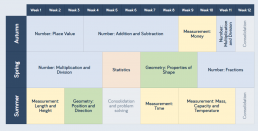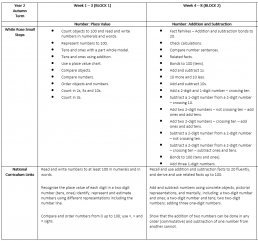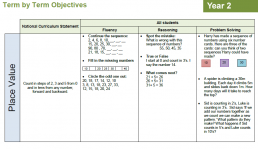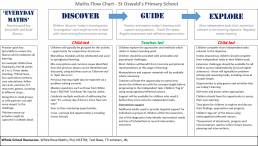Mathematics
Our Intent
National Curriculum Guidance
“Mathematics is a creative and highly inter-connected discipline that has been developed over centuries, providing the solution to some of history’s most intriguing problems. It is essential to everyday life, critical to science, technology and engineering, and necessary for financial literacy and most forms of employment. A high-quality mathematics education therefore provides a foundation for understanding the world, the ability to reason mathematically, an appreciation of the beauty and power of mathematics, and a sense of enjoyment and curiosity about the subject.”
Our intent is that the teaching of maths will:
- Help pupils to become fluent in the fundamentals of mathematics, including through varied and frequent practice with increasingly complex problems over time, so that pupils develop conceptual understanding and the ability to recall and apply knowledge rapidly and accurately.
- Help pupils to reason mathematically by following a line of enquiry, conjecturing relationships and generalisations, and developing an argument, justification or proof using mathematical language
- Help pupils to solve problems by applying their mathematics to a variety of routine and non-routine problems with increasing sophistication, including breaking down problems into a series of simpler steps and persevering in seeking solutions.
- Inspire pupils to develop an enthusiasm for and confidence in mathematics.
- Help pupils to recognise that maths is an essential part of everyone’s daily life in the wider world.
- Provide a rich and challenging learning environment which stimulates mathematical curiosity, thinking and learning.
- Ensure that all children flourish mathematically and achieve their full potential.
Our Implementation
The key areas of implementation we use are:
Our primary planning tool and long term plan is based upon the White Rose Maths scheme of work. These plans are designed to support a mastery approach to teaching and learning and have been designed to support the aims and objectives of the National Curriculum.
Planning documents-example (Year 2)
Mathematics is an interconnected subject in which pupils need to be able to move fluently between representations of mathematical ideas. The programmes of study are, by necessity, organised into apparently distinct domains, but pupils should make rich connections across mathematical ideas to develop fluency, mathematical reasoning and competence in solving increasingly sophisticated problems. They should also apply their mathematical knowledge to science and other subjects.
The expectation is that the majority of pupils will move through the programmes of study at broadly the same pace. However, decisions about when to progress should always be based on the security of pupils’ understanding and their readiness to progress to the next stage. Pupils who grasp concepts rapidly should be challenged through being offered rich and sophisticated problems before any acceleration through new content. Those who are not sufficiently fluent with earlier material should consolidate their understanding, including through additional practice, before moving on.
Flow Chart
The flow chart serves as an overview of how the subject is taught to ensure consistency in the following areas:
- Lesson structure
- Assessment
- Learning environment
- Resources
- Metacognitive scaffolding including knowledge organisers
- How we enhance the curriculum e.g. visits, celebrations, theme weeks
Impact
At St Oswald’s we see our children flourish through the wide-ranging curriculum to provide them with. We strive for the whole curriculum to be exciting, engaging and for all children to feel a sense of success. In Maths, we aim for the impact to be:
- Children achieve highly in maths. All key stages score above the national average.
- Children follow a clear structure of lessons, which gives them a consistent approach to learning.
- Children reflect on their learning, helping them to see their own successes and areas for development.
- Through assessment, children receive weekly wave 2 teaching sessions where consolidation and improved understanding is required.




